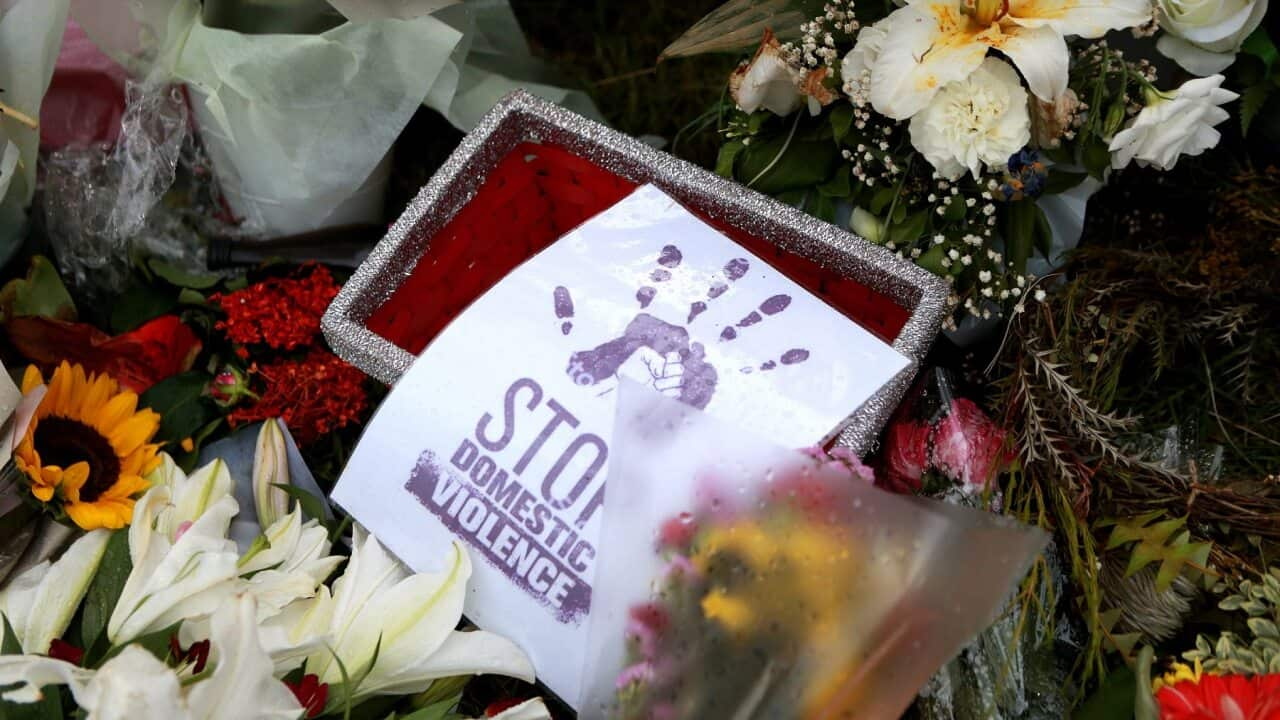Aboriginal and Torres Strait Islander women are not reporting family violence for fear of having children removed, according to new research.
The study, led by University of Melbourne Professor Marcia Langton, detailed the barriers faced by First Nations women when reporting violence, including the threat of homelessness and potential isolation from family and community.
The research was released on Tuesday by the Australian National Research Organisation on Women's Safety (ANROWS).
"We interviewed a number of women who were at risk of being homeless because there was simply no accommodation," Professor Langton said.
"Several women told us about their experience of being homeless and many women told us of their experience of losing their children and the fear of losing their children." Professor Langton was joined by a team of researchers - Kristen Smith, Tahlia Eastman, Lily O'Neill, Emily Cheesman and Meribah Rose, to conduct the study in Albury-Wodonga and Mildura in regional Victoria.
Professor Langton was joined by a team of researchers - Kristen Smith, Tahlia Eastman, Lily O'Neill, Emily Cheesman and Meribah Rose, to conduct the study in Albury-Wodonga and Mildura in regional Victoria.

Professor Marcia Langton is the lead author on a new study, which finds Indigenous women are facing barriers to reporting family violence. Source: BENT3LAND PRODUCTIONS
Ms Eastman said a lack of services also contributed to the reluctance of women to report violence.
"Part of the reluctance to report in the first place is the fear of child removal," she said.
"And then on top of that, if you do report, there is nowhere for you to go.
"Not only is there a shortage of culturally appropriate services, there's a shortage of any services that support women in those areas."
Ms Eastman said the cultural appropriateness of these services can also be a barrier for Indigenous women who need to access support.
"Some Aboriginal women prefer to access mainstream services for the reason that they may have a family member working at the Aboriginal service so they may not want to go there for confidentiality reasons," she said.
"What we found is the mainstream services do not offer any Aboriginal liaison officers, any Aboriginal specific services, which are huge barriers for people seeking assistance and that's why there's such a huge amount of women there that are not seeking support.
"The support just isn't there."
'No accountability'
Professor Langton said there is also a lack of accountability for perpetrators, with "no real consequences" for failing to complete courses aimed at stopping their use of violence.
She said these perpetrators find ways around court mandates like AVOs by getting relatives to contact the victim or 'tricking' them into breaching the orders.
"The system is not working well for the victims and it's certainly doing next to nothing to stop the violence of the perpetrators," Professor Langton said.
"There is no real accountability for perpetrators and this requires a great deal of attention."
Professor Langton said this lack of accountability can be exacerbated by others in the community, and women can feel isolated, furthering the barriers women face in reporting violence.
"One of the reasons for the reluctance of victims to report violence, especially in the cases of extreme ongoing violence is that a prospect of an imprisonment term for the perpetrator will put them in an invidious position in the community," she said.
"In these communities, you have very high incarceration rates for Aboriginal people and a long history of poor relations with police and historical memories of the Stolen Generations and the ongoing trauma of that.
"Women are reluctant to report violence because they might be seen as contributing to the incarceration of Aboriginal men and therefore seen as traitors to their community." Professor Langton said the researchers made a number of recommendations in their report, including the need to adequately fund Aboriginal-controlled services.
Professor Langton said the researchers made a number of recommendations in their report, including the need to adequately fund Aboriginal-controlled services.

Aboriginal women are not reporting domestic violence for fear of homelessness and child removal. Source: Getty Images
"Clearly there needs to be an increase in services for both victims and perpetrators and particularly an increase in Aboriginal services so that these services are able to invest more cultural intelligence into solving these problems," she said.
"These problems will not be solved without the active participation of the Aboriginal leadership and the Elders and the frontline workers in the Aboriginal services.
"Only they can solve these problems, otherwise it's just a continual entanglement of a marginalised community with the criminal justice system and the child protection system."
Ms Eastman said the recommendations need to be addressed as a matter of urgency.
"If these things aren't addressed, then lives will be lost," she said.
"The severity of violence in these communities is dire."


